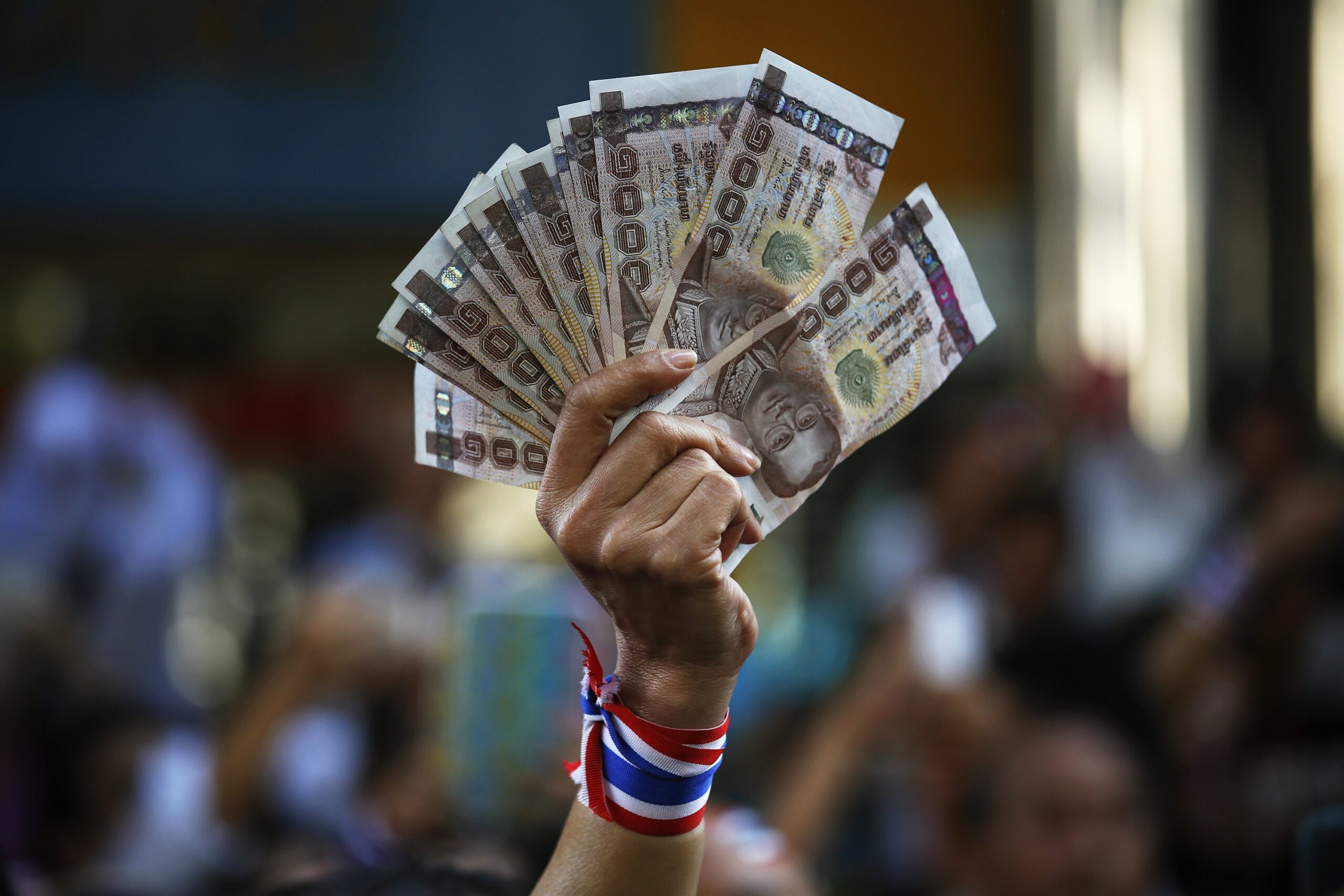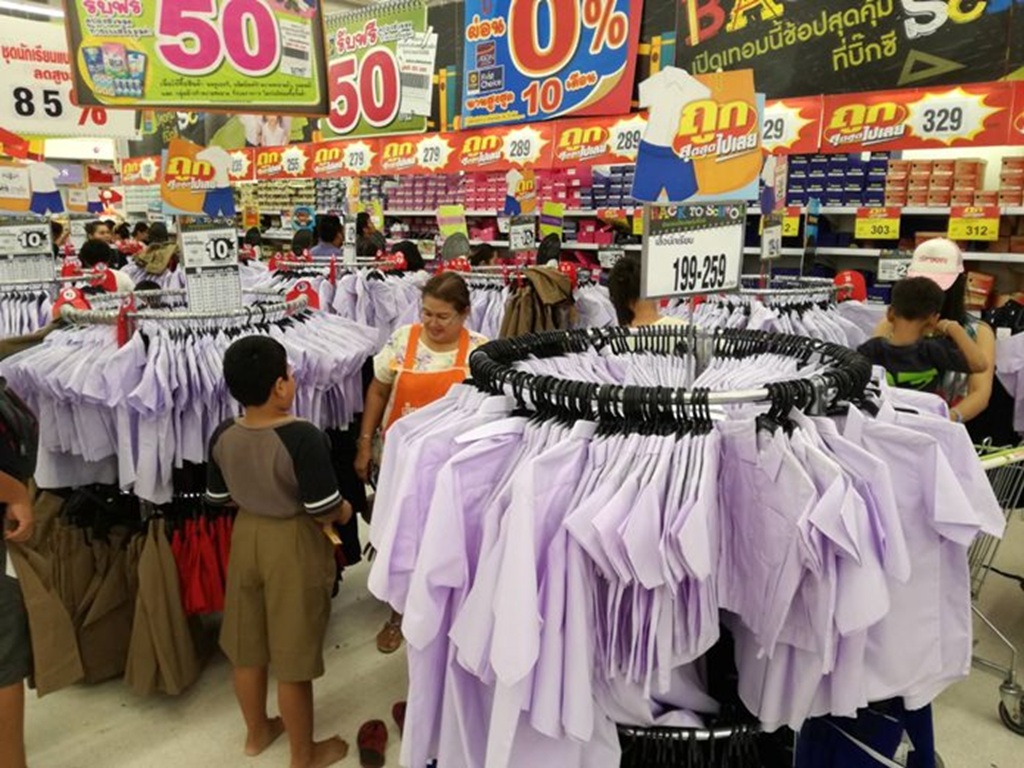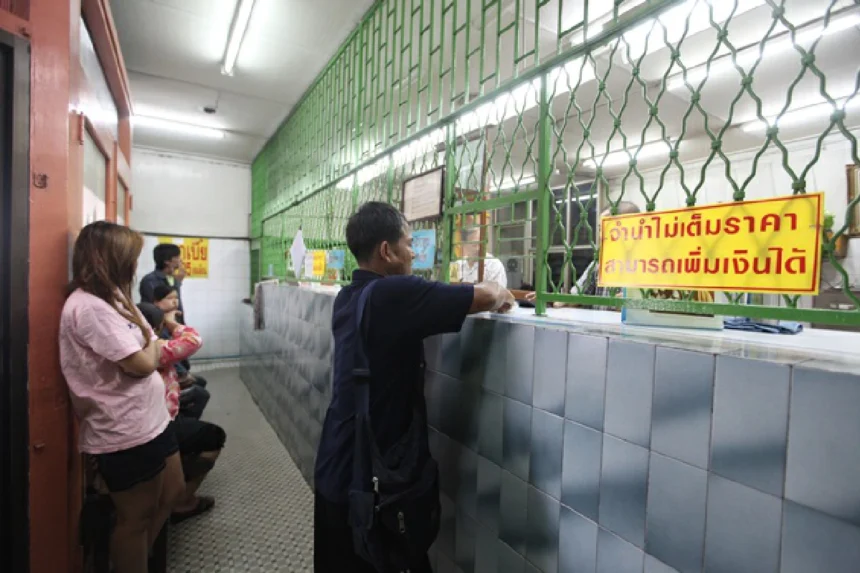BANGKOK — As a new school year draws near, Thai families face growing financial pressure. More parents are turning to pawn shops and borrowing from loan sharks just to manage the cost of school uniforms and supplies. Household debt keeps rising, school expenses are climbing, and food prices stay high. This mix of problems is putting millions of people under heavy strain.
Pawn shops across Thailand have seen a surge in customers. Many parents need fast cash to pay for their children’s school needs. A report from the Bangkok Post showed how urgent it’s become, pointing out that parents are “flocking to pawn shops to turn their items into cash” as the school term begins. At the Money Expo 2025 in Bangkok, pawn shop stalls were packed. Families handed over jewellery, electronics, and other valuables for quick loans.
Somsri, a 39-year-old single mum from Nonthaburi, shared her experience outside a pawn shop in Chatuchak. “I pawned my gold necklace for 5,000 baht (£110) to buy uniforms and books for my son,” she said, clearly worn out. “My income as a street vendor barely covers rent and food. There’s nothing left for school.” Like many others, Somsri has no savings. This is common in Thailand, where household debt is among the highest in Asia.

The Trap of Loan Sharks
When pawn shops or official loans are out of reach, some families feel pushed to use loan sharks. These unlicensed lenders often spread the word through flyers or friends and charge sky-high interest rates, sometimes up to 20% each month. Watcharin Romyen, who runs an ice delivery business, told BenarNews about her struggle.
She borrowed money during the COVID-19 lockdown to keep her business going. The interest grew so fast, she says it nearly broke her both financially and mentally. “I had to borrow. Banks take too long,” she said. “But the interest kept growing, and I couldn’t get out.”
A survey from the University of the Thai Chamber of Commerce in September 2024 found that informal lending now makes up 30% of household debt, up from 19.8% the year before. This increase comes as families hit their credit limits with banks.
Loan sharks take advantage, offering cash at harsh rates. Thanavath Phonvichai, president of the university, explained, “More people borrow informally because they’ve maxed out formal credit. Many don’t earn enough for living costs or emergencies.”
Household Debt Hits New Highs
Thailand’s household debt is reaching record levels. The Bangkok Post reports the average family owed 606,378 baht (£13,500) in 2024, up 8.4% from 2023 and the highest since 2009. The International Monetary Fund says the country’s debt-to-GDP ratio hit 90.6% in March 2023, one of the highest in Asia, higher than the United States and Germany.
TTB Analytics expects total household debt to reach 16.9 trillion baht (£376 billion) by the end of 2024, about 91% of GDP.
Wages remain flat, the economy grows slowly, and basic costs keep going up. The minimum wage in Thailand is still just 328 baht (£7) per day. Rent, food, and school expenses all cost more each year. Non, a 37-year-old tyre factory worker, told AFP that 30% to 40% of his wages go to loan interest. There’s little left after that. “I spend more than I earn,” he said, a common story among workers stuck in debt.

Rising School Expenses
School uniforms, books, and supplies are more expensive than ever. A basic uniform set—shirts, shorts or skirts, and shoes—costs between 1,500 and 3,000 baht (£33–£66) per child, according to shop owners at Pratunam market in Bangkok. Books and stationery add 1,000–2,000 baht (£22–£44) more. Prices for these items have gone up 10–15% in the past two years, mainly because of supply chain issues and inflation. For families with more than one child, these costs are overwhelming.
“Everything costs more now,” said Ploy, a 34-year-old office cleaner and mum of three, while shopping for used uniforms in Bangkok. “Last year, I spent 4,000 baht on school stuff. This year, it’s closer to 6,000 baht, but my pay hasn’t changed.” To save money, Ploy buys second-hand uniforms, but even those are getting more expensive.
Food inflation is squeezing family budgets even more, leaving less money for school. Since early 2022, prices for basics like pork, chicken, and eggs have jumped. This is due to higher oil prices and local problems such as disease outbreaks among animals. Al Jazeera reported that pork prices rose by 40% in early 2024. Chicken and eggs went up, too. By August 2024, inflation hit 7.9%, cutting into what families can afford.
Poonya Sugurd, who runs a grocery shop in a Bangkok suburb, told Al Jazeera her customers are buying less. “Many people have gone back to their hometowns until prices come down,” she said. Families like Somsri’s sometimes have to skip meat or meals to afford school supplies. “Some days, we only eat rice with chilli paste,” Somsri said. “Meat is out of reach now.”
What the Government Is Doing
The Thai government is aware of the crisis. New Prime Minister Paetongtarn Shinawatra has announced fresh economic help. In December 2024, the “Khun Soo, Rao Chuay” (You Fight, We Help) programme was launched to help people and small businesses restructure their debts and lower repayments. The Bank of Thailand brought in new lending rules in January 2024, helping over 7 million accounts.
Finance Minister Pichai Chunhavajira has called for quick action, pressing the Bank of Thailand to support individual borrowers. A 145-billion-baht (£3.2 billion) cash handout will soon go to welfare cardholders. But some economists warn this will only bring short-term relief.
The IMF says Thailand needs bigger changes, such as better financial education, updated bankruptcy rules, and stronger social safety nets, especially for informal workers, who make up over half the workforce.
Families like Somsri’s and Ploy’s are barely coping. The rush to pawn shops and loan sharks shows just how serious the problem is. Rising costs and low wages make it hard for parents to dream of a better future for their children. With debt still climbing and inflation eating away at savings, hope is fading for many Thai families.
“We just want our kids to have a chance,” Ploy said, holding a bag of second-hand schoolbooks. “But each year, it gets harder to give them that.”














